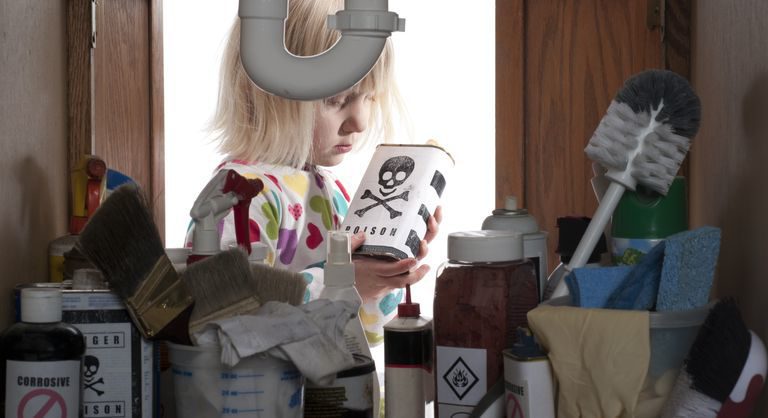
Many homes as well as commercial facilities have stockpiled chemicals that are expired, or they have an excess of these chemical containing materials. It may have been held for so long that it has become monolithic or unusable due to a hygroscopic inclination. When this is the case, the knowledge of whom to call for its proper disposal is now the key question.
Types of Household Chemicals
 Some of these household chemicals include old petroleum (oil) based paints, pesticides, contaminated gasoline, broken fluorescent lamps, and much else. Homeowners generally accumulate these chemicals in the back shed, kitchen sink cabinets, garage. Often these spaces are unfit for storage and create a hazard for children, animals and the environment. Unfortunately, without proper knowledge these old chemicals find their way into the groundwater tables, landfills, and the human bloodstream.
Some of these household chemicals include old petroleum (oil) based paints, pesticides, contaminated gasoline, broken fluorescent lamps, and much else. Homeowners generally accumulate these chemicals in the back shed, kitchen sink cabinets, garage. Often these spaces are unfit for storage and create a hazard for children, animals and the environment. Unfortunately, without proper knowledge these old chemicals find their way into the groundwater tables, landfills, and the human bloodstream.
How to Handle These Chemicals
According to the Department of Environmental Protection’s website, a homeowner is to handle household chemicals in accordance with federal regulations. This involves proper consolidation, identification, packaging, transportation, and disposal of regulated hazardous wastes. This process would deem the homeowner the “generator” of hazardous waste or chemicals. It would be safest for the generator to hire a third party with the proper training to safely remove the waste.
Hiring a Third Party
There are many reasons for hiring a professional disposal company, most of which are centered around the minimization of liability issues for the generator. The federal government regulates the handling of hazardous waste disposal, transportation, security clearance checks, licenses, and permits. While online hazardous materials training (HAZWOPER) is available, the best single answer to your disposal of chemicals is contacting a qualified chemical disposal company. Scheduling a visit to your facility or a phone call to meet the individual that you are relying upon for your proper waste disposal would be a smart starting point, to assure that your waste is disposed of properly. The cost upfront may be more than just dumping chemicals down the drain, however, it will cost far less than any fine that could be associated with negligence and the adverse effects to human health and the environment.
